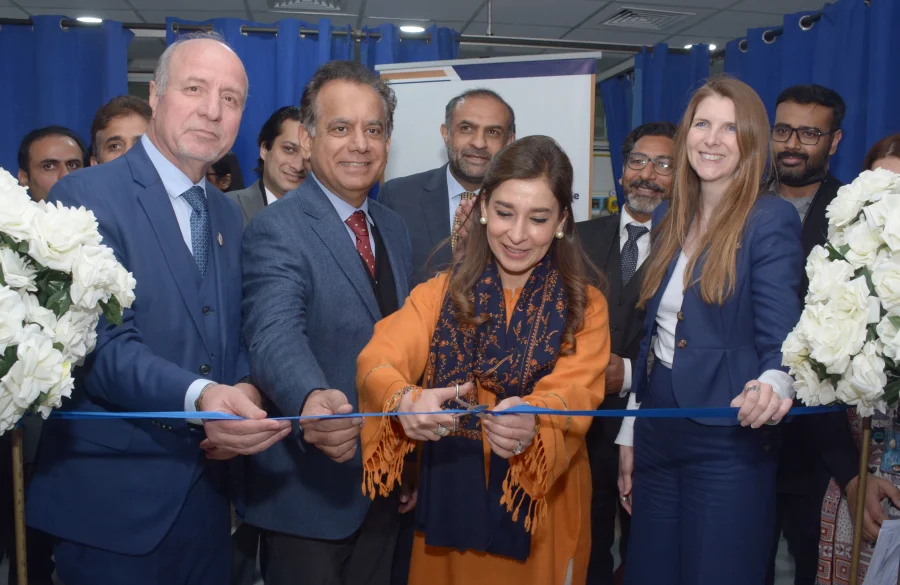Zubair Qureshi
An Anti-Rape Crisis Centre was established at Pakistan Institute of medical Sciences (PIMS) on Monday for survivors of sexual violence. The centre is established by the Ministry of Law & Justice and Ministry of Health with the support from the UK Government, UN Population Fund (UNFPA) and Legal Aid Society.
The centre would help survivors of sexual violence including rape get over the trauma and they would also receive timely medico-legal service and psychosocial support besides medical and clinical assistance.
The step is part of the implementation of the Anti-Rape (Trial and Investigation) Act, 2021 which ensures justice for survivors of sexual offences and provision of services and support they may need before, during and after a trial.
Chief Guest on the occasion, UK’s High Commissioner Jane Marriott said anti-rape crisis cell at PIMS was a significant milestone in addressing gender-based violence in Pakistan. This new anti-rape crisis facility will ensure that gender-based violence survivors are provided with quicker response services under one roof. The UK is proud to partner with Pakistan in advancing such important innovations for tackling violence, she said.
Speaking on the occasion, Raja Naeem Akbar, Secretary, Ministry of Law and Justice appreciated the support of all partners in establishing the centre. He stated that the centre would be helpful in addressing the critical issues of gender-based violence”. He emphasized the establishment of anti-rape crisis centres at the provincial level and importance of availability of functional ARCCS throughout Pakistan to ensure timely and effective assistance to survivors of rape’.
Iftikhar Ali Shallwani, Secretary MoNHSRC also welcomed the support from partners and held the establishment of the centre a milestone in quick response service for the survivors of gender-based violence. “We must ensure the access of this crucial service to communities living in the outskirts of Islamabad. Due to stigma, many survivors hesitate to report or to walk to the centre,” he said adding as a solution, we can tap on technology and enable people’s access to services through technology-based solutions.
Chairperson for the Special Committee on Anti-Rape Law and National Commission on Rights of Child, Ayesha Raza Farooq also spoke on the occasion and informed the audience that the anti-rape committee had framed comprehensive rules to usher in a new jurisprudence ready to combat sexual violence. The purpose of the Crisis cells is to provide timely response and expedite justice. It provides victim-centric support round the clock. Looking ahead, the goal is to allow every citizen, especially women and children to claim public spaces and travel on public routes without any fear and vulnerability of sexual violence.’ UNFPA Representative Dr. Luay Shabaneh said ‘Rape is an ugly crime which causes lifelong pain and psychological trauma to those who face it.










